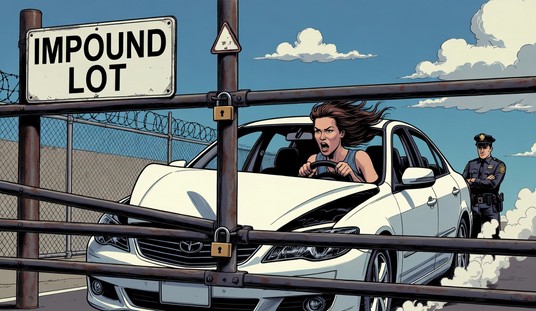In “Hartache,” Noemie Emery of the Weekly Standard compares and contrasts two infamous Democrat presidential candidates wildly overhyped by their party operatives in the MSM who later famously crashed and burned due to Icarus-level hubris:
[Gary] Hart and Obama each had an iron-clad faith in his own claim to genius, and many believed them, partly because they looked like the kind of people journalists thought should be intelligent, and partly because their sort of intelligence—glib, facile, and good at the right sort of patter—was the same sort that these journalists had. Thus presidential historian Michael Beschloss called Obama (before he took office) “the smartest man ever elected as president,” and Bai takes Hart at his own self-estimation, as a “brilliant and serious man, perhaps the most visionary political mind of his generation . . . the flat-out smartest politician I had ever met.” Hart’s gift, as Bai put it, “was to connect politics and culture and theology and technology seamlessly and all at once—to draw from all available data points . . . a larger picture of where everything was headed. . . . Hart himself would tell me, ‘I have only one talent. I can see farther ahead than most people. And I can put pieces together in constructive ways, both to avoid disaster and to capitalize on change.’ ”
Alas, as it happened, “avoiding disaster” was not one of Hart’s strong points, and the man many thought capable of saving the world and the country proved a genius at destroying himself. Hart worshipped John Kennedy and imitated him down to his gestures and weakness for women, seeming to think he was back in the ’50s and ’60s, when presidents’ affairs and those of their peers had gone unremarked on, or perhaps in the days of the 1940 election, when Wendell Willkie made campaign speeches from his girlfriend’s apartment and Franklin Roosevelt’s train would make stops in New Jersey so the president could see his old flame. Hart’s first mistake was to ignore the extent to which Chappaquiddick and Watergate had collapsed the old walls between public and private, increasing suspicion of public officials and making dissembling seem the worst of all sins. His second mistake was to lie, which turned his private life into a public and character issue, into which the press felt entitled to dig. In Whose Broad Stripes and Bright Stars, their book on the 1988 contest, Jack Germond and Jules Witcover give a detailed list of the people Hart lied to, including reporters, old friends, and campaign consultants who had agreed to work for him only after being assured by him or his allies that the rumors about his many adventures with women were either false or else a thing of the past.
Nonetheless, one woman refused to join the campaign, saying, “Everybody here knows that he’s fooling around with a woman in Florida, and that he came out of a bar a few nights ago with another guy and two other women. . . . I can’t work for him.” He assured aides that nothing was wrong even as he was arranging a weekend in Washington with the woman in Florida. Reporters from two different news organizations warned his campaign they were thinking of tailing him, which perhaps was in Hart’s mind when he dared E. J. Dionne to “follow me around. I don’t care. I’m serious . . . go ahead. They’ll be very bored.”
Flash-forward to today; “Obama Encouraged Us to ‘Pull Every Clip’ On Obamacare So We Did,” David Rutz writes at the Washington Free-Beacon. Speaking of ominous parallels* note the exceedingly Hart-like goading from the semi-retired former president at the start of the video:
[jwplayer player=”1″ mediaid=”77030″]
* Yes, the homage to a book referencing an infinitely more sinister form of nationalized socialism was intentional.










Join the conversation as a VIP Member